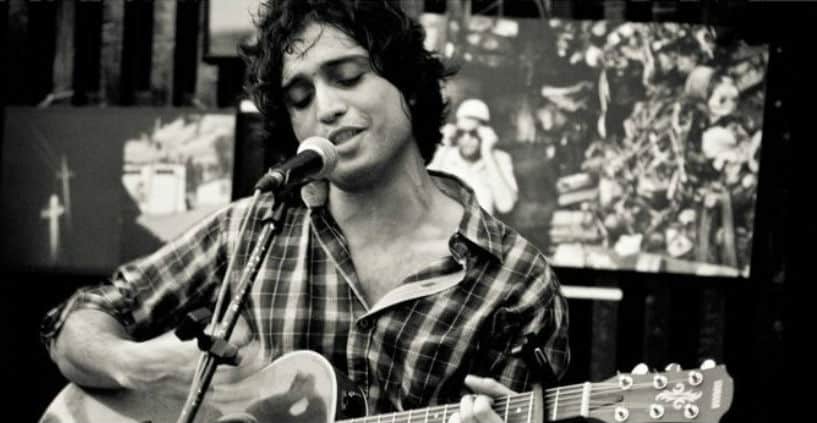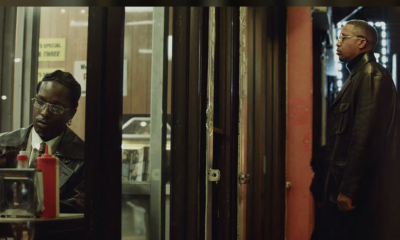Sound Plunge
Against Unfair Contracts by Record Label Giants
Nikhil D Souza, independent singer-songwriter on why Abhay Deol protesting against record labels denying musicians and singers their share of royalties is a landmark in itself. Nikhil deconstructs the clause , its repercussions on the artist who is the creator and the importance of SAI. He goen on to explain why artists are fighting back against the autocratic royalty sharing format and also giving recording labels a complete miss and going truly indie.
Nikhil D’Souza, independent singer-songwriter on why Abhay Deol protesting against record labels denying musicians and singers their share of royalties is a landmark in itself. In this open letter, Nikhil deconstructs the clause, its repercussions on the artist who is the creator, and the importance of Singers Association of India. He goes on to explain why artists are fighting back against the autocratic royalty sharing format and also giving recording labels a complete miss and going truly indie. To know about the case, click here.
Why Abhay Deol’s Recent Protest Against Record Labels Giving Musicians a Raw Deal is Important?
This is the first time someone from the acting fraternity has stood up for something like this. This has been happening for the last couple of months; three months in fact, where T-Series has been issuing contracts for the singers to sign that take away the right given (to them) by the copyright amendment. With the recent formation of the Singer’s Association, a lot of people are becoming aware of their rights and refusing to sign it. So that has been happening since last year, but over the question of royalties and this (attitude of) kind of trying to own everything – that has been happening for a while. It was somewhere last year that the Singer’s Association of India (SAI) was formed, and everyone got royalties from radio and other sources, as it is in the West. And then T-Series and some other places started changing clauses. They started sending these very autocratic documents and expected people to sign it – whatever royalties you’re getting from other sources will also come to us now. So you need to assign those rights to us as well.
Why Record Labels Need to Stop Making Unfair Contracts?
Again, this happened with a film called Heartless (an upcoming Shekhar Suman film) that I did as well. I did sign a contract which was modified, something more akin with the recent copyright amendment, and so my voice was replaced. It has been happening for a couple of months and a lot of films have been facing this problem. So it is only a matter of time before producers start throwing up their hands and music directors start protesting. It is very clear, the only thing that T-Series has to do is to establish fairer contracts.
On The Depleting Role of Record Labels?
As far as musicians are concerned these days, you do not really need a record label for distribution. What a record label actually does is distribute the music through music CDs. They have their distribution channels in place and that’s why they were useful ten years ago when people were buying CDs. Now they use the digital medium, they do not have to buy CDs. Musicians generally put up their music on YouTube and people download and buy their music. Mostly what the record label does is to provide you with a chunk of money to record your album and when it has been distributed, you sort of figure out your earnings from there. But these days it has become easy, recording an album is not as daunting as it was before. For independent musicians, it is cheaper these days, almost like recording at home. A musician can create an album in the house, put it up on social media, put a marketing team behind it, put it up on iTunes and other websites where the album can be downloaded, and basically handle it from top to finish. So I don’t think a record label really figures in the life of an independent musician these days.
When it comes to independent production of film music?
As far as music is concerned, and Bollywood music is concerned, there are many things I’m not aware of, like TV channels (procuring film music). So basically the producer puts in the money for recording the music independent of the record label. He only sells the rights to the record label in the end. The producers don’t even take any money sometimes for giving the rights to the record label, who provides it to a larger audience and basically validates the whole expense for them. I’m not exactly sure how that model works, but these guys (record label companies) have it in place to get the music to the masses. I’m not going to question that. However, what I’m saying is, why are you trying to take away the rights that are given to us, the rights that are due to us?

“is the first time someone from the acting fraternity has stood up for something like this. “































